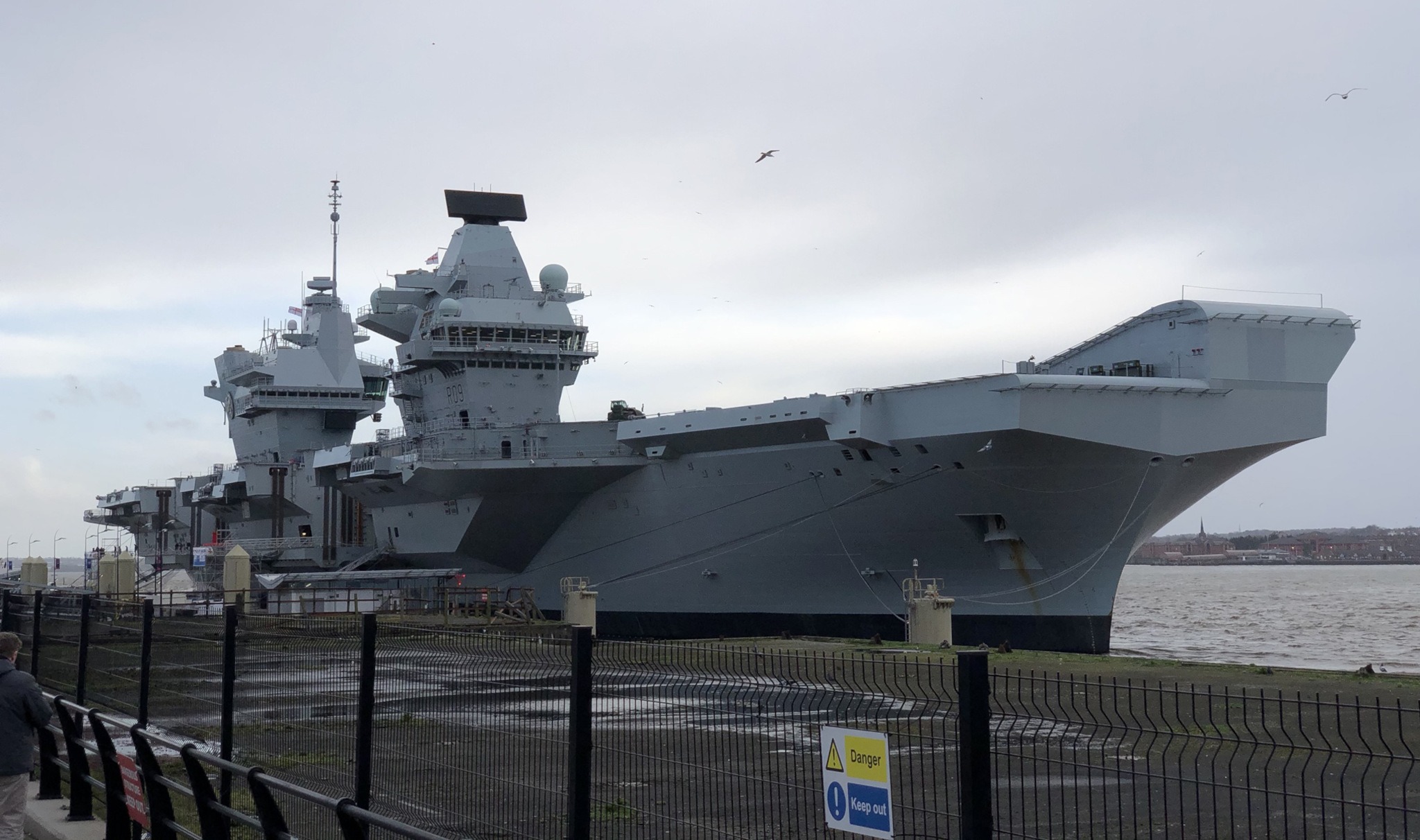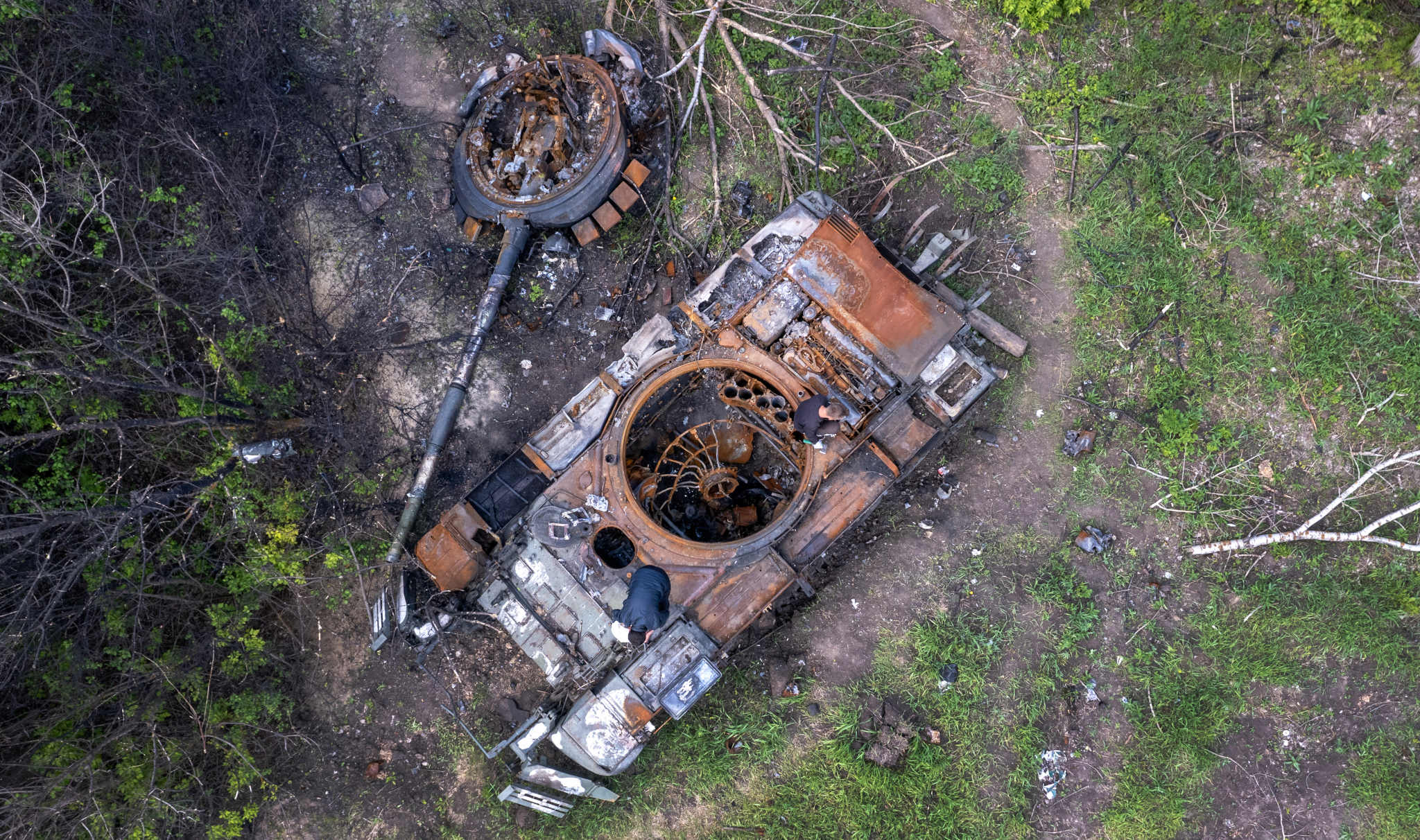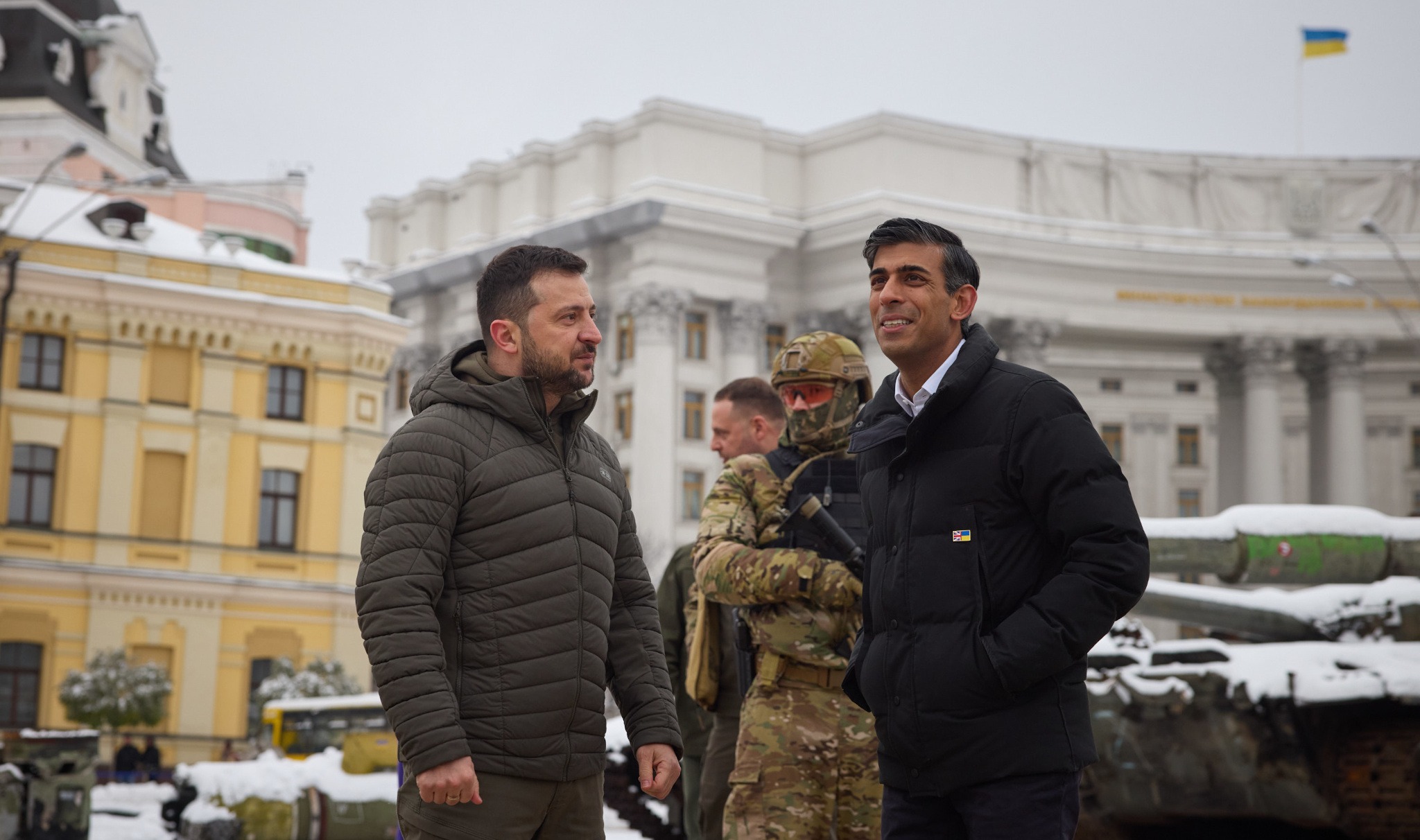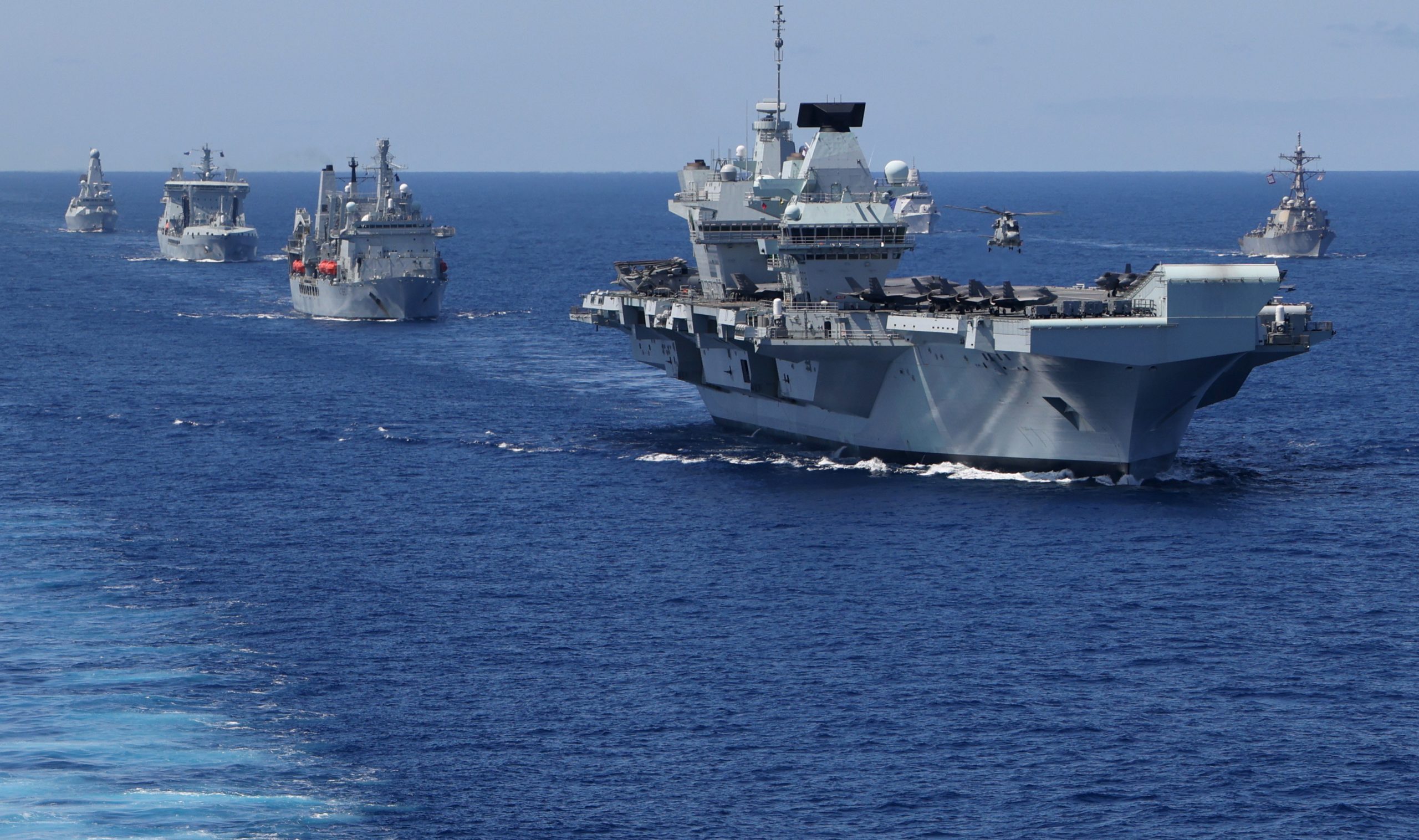Are the UK’s major defence and security policies relevant, given the current state of the world?
Since Declassified started more than three years ago it has highlighted plenty of faults in UK military policy, with many previously hidden by a culture of secrecy. So do we face a major structural problem that needs a fundamental rethink?
A useful place to start is a recent speech by the Chief of UK Defence Intelligence, Adrian Bird, at the Royal United Services Institute last month.
He confirmed the government’s view that the UK’s “security priority must be our home region of the Euro-Atlantic, and here we assess that Russia will remain the greatest threat to the UK mainland out to 2030.”
While much of Bird’s speech was concerned with new technologies and the changing character of the battlefield, he also focused on one key element of the current UK military posture.
He said military strategy sets Britain “the goal of establishing the broadest and most integrated presence in the Indo-Pacific of any European nation, building on our many historic and contemporary ties, and driven by our economic ambition as the world’s 6th largest economy.”
So, while Bird paid some attention to state behaviour, climate change and pandemic risk, he summarised the UK’s overall posture as trying, perhaps a little desperately, to remain one of the “big boys” in the global status game.
One of the big boys
The UK does this in two ways over and above straightforward homeland protection. First, it maintains a hugely expensive nuclear force, likely to exceed £200bn lifetime costs for the new Trident-plus submarine-based system.
Second, it can also deploy a so-called carrier task group anywhere in the world, focused on the two new aircraft carriers, Queen Elizabeth and Prince of Wales.
These ships, by far the largest ships ever deployed by the Royal Navy, need huge support to operate when on a war footing, each requiring an anti-submarine frigate, two air defence destroyers, a nuclear-powered attack submarine and at least two auxiliaries.
Even one task group would strain the Navy’s resources and two would be impossible, so this key function of the Navy can only operate as part of an alliance.
To make matters worse, the Prince of Wales broke down last year, will cost at least £20m to repair and be out of action for a year.
Offensive operations
The UK’s overall military posture is the “defence of the realm” but the term is misleading. “Defence” all too often means offensive operations fighting small and not-so-small wars in far off places now including the Indo-Pacific.
There are two problems with this. First, wars of this kind in the last couple of decades have, for the most part, been utter disasters. And second, they are part of a military posture that is largely irrelevant to the major challenges of the near future.
As to recent wars, we have had four. The Afghanistan conflict lasted 20 years and ended with defeat of the entire US-led coalition by the Taliban.
“Defence” all too often means offensive operations fighting small and not-so-small wars in far off places
The Iraq War lasted from 2003 to 2011 and caused direct documented civilian deaths of up to 206,000 and around 100,000 combatant deaths – with the full number probably much higher. – leaving the country deeply insecure and leading to the rise of terrorist group ISIS.
That led to the third conflict, the 2014-18 air war against ISIS in Iraq and Syria, killing another 60,000 60,000 militants, according to US claims.
Even after that, ISIS still survives in the Middle East and South Asia and is gaining in influence across the Sahara and down through the Democratic Republic of Congo and Uganda into eastern Africa.
Finally, 12 years after the 2011 Anglo-French air war in Libya, the country has been mired in internal conflict and has also turned out to be a very useful conduit for light arms as radical Islamist paramilitaries work to bolster their movements further south.
Not military in nature
None of this bodes well for future interventions by British forces. Even so, it misses the point that the security challenges facing the country in the 2020s and beyond are not military in nature and cannot be overcome by military force.
The major challenges are climate breakdown, which is getting worse by the month, and widening socio-economic divisions pushing huge numbers of people across the world into deeper poverty.
Bird’s speech did cover climate change, albeit briefly, but it did not begin to address the issue with the urgency required.
In 2020 the UN published an indicator of what would be required just to prevent the average global temperature increasing beyond 1.5°C above pre-industrial levels.
There was a near-global consensus that anything above that would take us into very dangerous territory, and to prevent it required a 7% per year reduction in carbon emissions for a decade.
Three years later that is not being remotely achieved. Carbon emissions have actually increased and to reach the same level of decarbonisation by 2030 now requires a 10% reduction per year.
Climate breakdown
We are now seeing the impact of climate breakdown, with 2023 already turning out to be a year of extreme weather events, such as the record-breaking Texas/Mexico “heat dome”, severe storms in Louisiana, massive Canadian wild-fires and the hugely damaging drought in Iran.
Moreover, the combination of endemic carbonisation with the shorter-term heating impact of a new El-Nino event means that many more weather disasters are in store over the next 18 months.
“Many more weather disasters are in store over the next 18 months”
Some senior officials in the military and civil service are aware of the dangers. They expect to see catastrophic damage from storms, floods, wildfires and droughts and an increasing incidence of weak and failing states, with all the security problems that these involve.
What is much less commonly recognised is the near certainty of massive increases in migration as many millions of desperate people try to find safer places to live.
There may be other major challenges, but we now know for sure that climate breakdown and these increasingly global catastrophes are unavoidable without immediate action.
Transformation
The risk follows that senior military officials may see this primarily as an additional role for their forces, no doubt requiring more money, but that completely misses the point.
If the function of the military is to mitigate the impact of climate breakdown, all that does is slightly delay its direct impact but does virtually nothing to stop the whole process.
If senior military figures were to “speak truth to power”, and relentlessly tell politicians and the public that tanks, warships and strike aircraft cannot deal with climate breakdown, and that it has to be prevented, they might have an impact, but they don’t.
For Britain to respond to what is an unparalleled global challenge requires a veritable transformation of economic and political organisation.
It starts with heavy investment in renewables combined with an accelerated transition to energy conservation. The former focuses initially on nationwide household insulation but moves rapidly on to transport and industry and the latter prioritises wind and solar resources.
All require multi-billion-pound investment.
There should also be an immediate expansion in research and development spending on energy storage systems, and in parallel with that a marked increase in research on climate science, and oceanographic and polar research.
Culture of the military-industrial complex
In terms of a global role, far more important than aircraft carriers and incomparably more essential than a ridiculous nuclear arsenal, is the need to reverse the cuts in the international development budget and then increase it.
As well as a national transition of decarbonisation, the UK needs to put serious money into poorer states across the Global South to enable them to make a rapid green transition, as well as greater emphasis on alleviating deep poverty and promoting gender rights.
UK “aid” is currently directed primarily at increasing trade and meeting foreign policy priorities but that has to change.
“The military posture is determined by a small and exclusive group”
Such thinking runs directly counter to the culture of the UK’s military-industrial complex which is a largely closed system that privileges national security and advances national interests.
This is pursued within an entrenched traditional view of the UK’s role in the world where the dominant tools for change are military. There is little or no concern with common security and precious little embracing of human security thinking.
Instead, the military posture is determined by a small and exclusive group almost entirely made up of middle-aged and middle-class men heavily influenced by business interests and inclined to dismiss alternative views.
Rethink
Given the evident challenges ahead, this posture is not remotely fit for purpose and requires a complete rethink. That would seem to be impossible in the present political climate, either now or after the next general election, but a single factor makes change inevitable.
That factor is climate breakdown, which changes everything and makes the importance of rethinking security especially significant.
Whether we like it or not, current trends point to climate breakdown that will rapidly accelerate in the late 2020s and could even exceed some tipping points by 2030.Far too little new thinking is being applied to the challenge of rethinking what we mean by security. Joining the civil society-led Alternative Security Review is a good place to start.





